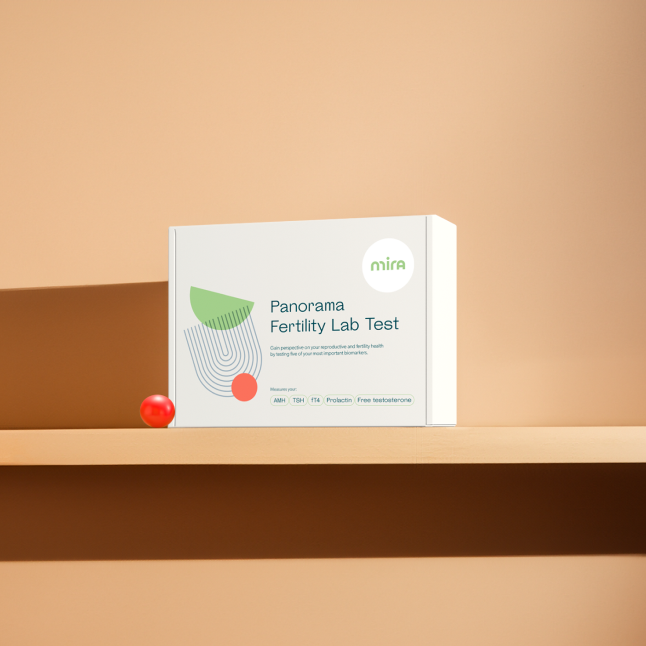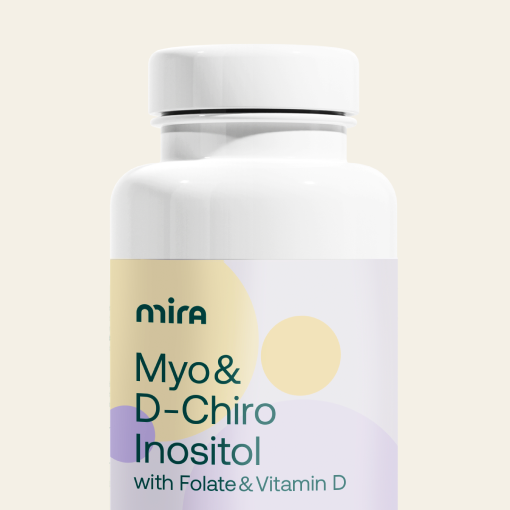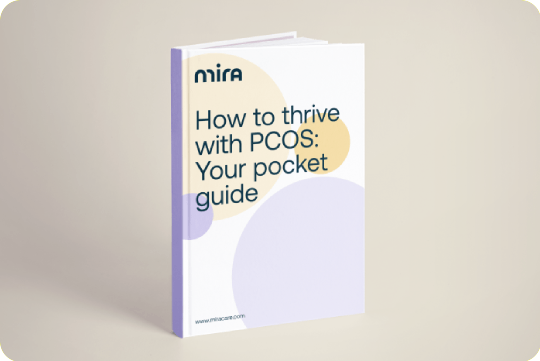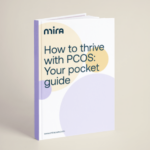12 PCOS Supplements & Vitamins to Help Your Body + Hormones
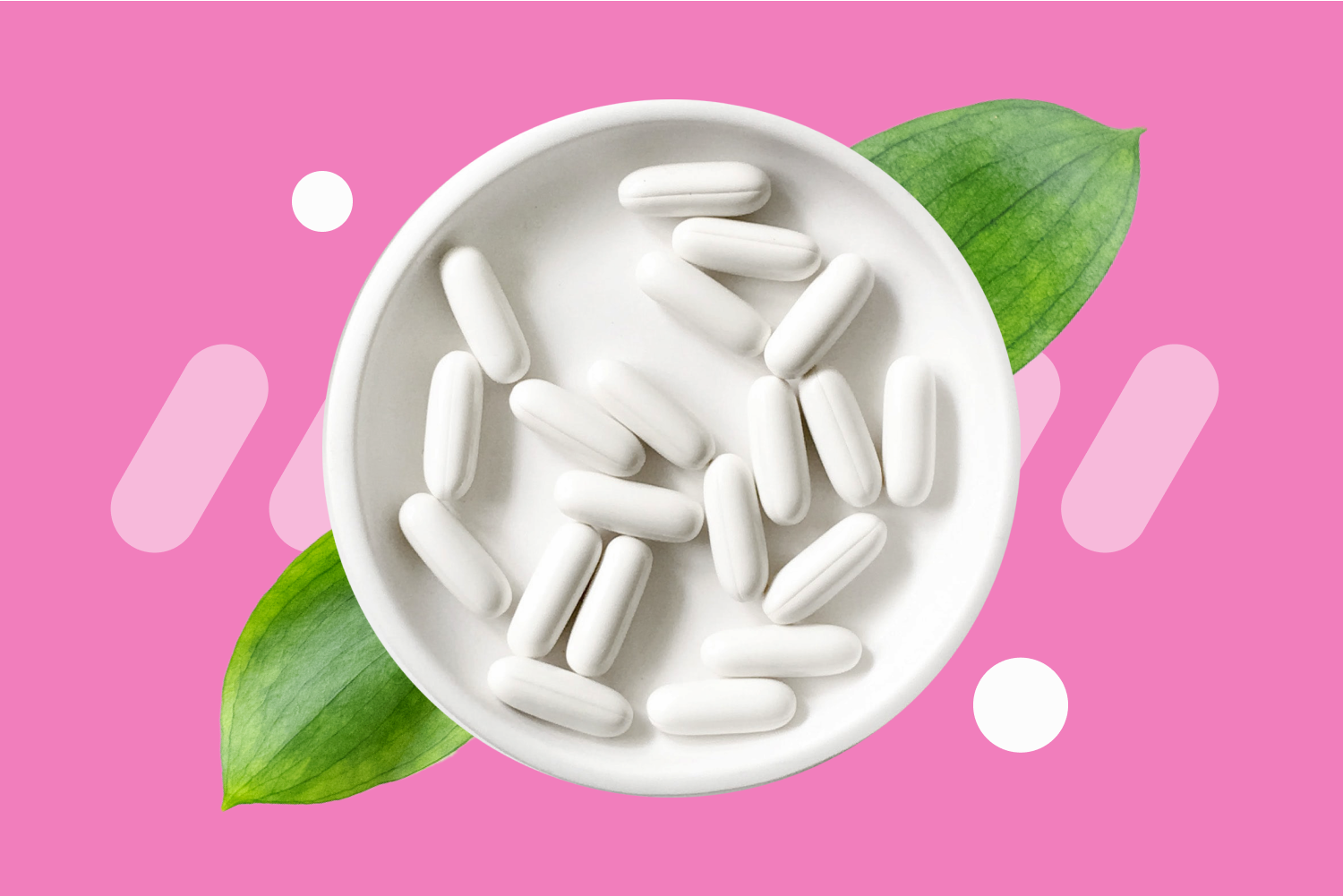
PCOS is a common hormonal condition that can wreak havoc on a woman’s health and reproductive system. Irregular cycles, ovulation issues, acne, excessive hair growth on face and body, and weight issues are all common among those who experience PCOS, but there’s more to this hormonal condition than meets the eye.
As a metabolic condition, the first line of defense against PCOS always involves nutritional and lifestyle intervention and research has shown that several vitamins and supplements may help those with PCOS manage the condition.
In this post we’ll review some of the most common and effective PCOS supplements and how they help combat certain symptoms. Supplements can be a way to support healthy hormones but they can also be a recipe for expensive urine or even cause additional problems. We’ll help you figure out what works, why it works, and what the science says about common PCOS supplements.
What is PCOS? (Polycystic Ovarian Syndrome)
Polycystic ovarian syndrome is a hormone and metabolic condition that affects nearly 1 in 10 women of reproductive age and is among the leading causes of infertility. PCOS is characterized by hormone imbalance and blood sugar regulation problems. Women with PCOS have high levels of androgens, or male sex hormones, as well as an imbalance of estrogen and progesterone.
The hormonal imbalance that accompanies PCOS can lead to cystic ovaries and a chronic lack of ovulation, making it hard to get pregnant. The condition is notoriously hard to diagnose, though common symptoms include irregular periods, excessive hair growth on the face and body, acne, infertility, and weight gain.
Behind hair growth, skin issues, extreme mood swings, and heavy bleeding can be many hormonal issues. It is possible to test your hormone levels from the comfort of your home. This is often cheaper and more convenient than visiting your doctor’s office and may even give you a starting point for the conversation.
There are a number of different at-home hormone tests to choose from – including Mira’ own Fertility Panorama Lab Test. This quick and easy at-home finger-prick measures five key fertility hormones including prolactin, free testosterone, anti-mullerian hormone (AMH), thyroid-stimulating hormone (TSH) and free thyroxine (fT4). You will get 5 individual and personalized hormone reports with actionable steps to understand what your numbers mean for your ovarian reserve, thyroid function, menstrual cycle, hormone balance, and fertility health.
It’s not clear what causes PCOS and likely involves a mix of genetic and environmental factors. However, when diagnosed, PCOS is highly manageable through fundamental lifestyle changes and dietary supplements.
Can supplements really help PCOS?
The most common treatments for PCOS are usually based on lifestyle modifications like exercise and diet, but this also includes nutrient supplementation therapy. It’s important to note though that dietary supplements are regulated differently around the world and can actually interfere with other treatments and medications. It is always best to speak to your doctor before taking any supplement especially if you are trying to conceive or hope to conceive in the future.
Safety aside, several vitamins and minerals help regulate hormonal imbalances and promote ovulation which can be especially helpful for those with PCOS. They can be an excellent addition to your PCOS management plan but it’s important to look at the research to understand how they can help and whether they will work for you.
PCOS Supplements
The following supplements are commonly used to help women with PCOS and have the most evidence-based support behind them. Most work to manage insulin resistance, metabolism, and hormone balance but can have a range of other health benefits.
Fish oil
Inflammation and insulin resistance are two key factors in PCOS and both can negatively impact fertility as well as your general health. Fish oil has anti-inflammatory properties and can improve insulin resistance making it a key supplement for those with PCOS. Research has also demonstrated that supplementing with fish oil can help improve ovulation, ovarian reserve, and overall fertility.
Aside from helping with PCOS treatment, fish oil has a host of other health benefits for women including brain and eye development for a baby as well as preventing heart disease and declining mental function.
Probiotics
Research has found an association between PCOS and the gut microbiota but the underlying link is still unclear. Probiotics are one way to create a healthier balance of gut bacteria by introducing live bacteria that support a healthy colony of bacteria and other microorganisms in the gut. This can help those with PCOS and studies show that your gut microbiome plays a role in metabolism, although the effects are modest.
Probiotics also help improve hormonal balance and reduce inflammation, a key contributor to insulin resistance. Research has shown that taking probiotic supplements can help women with PCOS and may help with other symptoms by stabilizing the menstrual cycle and balancing hormone levels.
Zinc
Zinc is an essential mineral for all humans and plays a role in many bodily functions including cell growth, hormone release, and reproductive functions. In fact, it is essential for proper functioning of the reproductive system in both males and females and zinc deficiency can have serious health implications. Less is known about its impact on the female reproductive system but studies have suggested zinc deficiency could play a role in several conditions that affect the area like issues with menstruation.
Women with PCOS have shown positive results from zinc supplementation especially in terms of insulin resistance, but it’s also been shown to help other PCOS symptoms like acne, hair growth, hair loss, as well as improve hormonal imbalances and ovulation.
Vitamin D
Vitamin D isn’t found in the foods we eat, so most people need to supplement it in some other way. Whether that’s through getting adequate sunshine or vitamins, getting enough vitamin D may lower inflammation, improve insulin resistance and regulate your menstrual cycle.
Studies show that up to 85% of women with PCOS experience vitamin D deficiency so adding this to your treatment plan may be particularly helpful. Vitamin D is critical to your endocrine system and also helps regulate the absorption of calcium. Supplementing with vitamin D can help with menstrual regularity and ovulation for women with PCOS in addition to its many other benefits.
Inositol
Up to 70% of women with PCOS have some level of insulin resistance. Insulin is the hormone that helps regulate blood sugar levels and your body depends on those receptors working properly for a balanced metabolism. While most know about insulin’s role in blood sugar regulation, it also plays a role in signaling the ovaries to produce certain hormones.
When the signaling system isn’t working properly, the body reacts by producing even more insulin which in turn causes a host of knock on effects that can impair follicle development and disrupt ovulation. Inositol is well known for its ability to improve insulin resistance and has been well studied. Its host of other benefits like promoting egg quality and improving ovarian function make it one of the best supplements for women with PCOS.
Resveratrol
You’ve likely heard much of the hype around this supplement from headlines claiming the benefits of red wine for cardiovascular health. A compound found in various plants, resveratrol acts like an antioxidant as a defense against free radicals and oxidative damage in the body. Oxidative stress is linked to many disorders and certainly plays a role in PCOS, though the exact relationship is still unclear.
In women with PCOS, supplementing with resveratrol has shown benefits for hormone balance and fertility, as well as improving insulin resistance. Although it’s well tolerated as a supplement, not much is known about the risks to pregnant women or babies in utero and it could interact with other supplements or medications.
Carnitine
Another antioxidant, carnitine, or Acetyl L-Carnitine (ALC) helps the body turn fat into energy. Low levels may be linked to several common traits of PCOS like insulin resistance and higher levels of androgens. Carnitine has proven to be effective at managing issues with inflammation and glucose metabolism. Although more research is needed in the area, researchers are impressed with carnitine’s impact on PCOS markers and it is a popular supplement used for weight loss.
NAC (N-Acetyl-Cysteine)
Like other antioxidants, NAC works to reduce inflammation and oxidative stress in the body. Because women with PCOS tend to have higher levels of both, this is a great supplement to consider for treatment. NAC has also been shown to lower testosterone levels, improve insulin resistance, and boost fertility. It works by increasing the production of glutathione, an important antioxidant that helps reduce inflammation and protect cells from damage.
NAC helps regulate your menstrual cycle by promoting hormone balance and liver detoxification. Even if you’re not trying to get pregnant, your menstrual cycle can say a lot about your health and an irregular cycle should be checked out.
Berberine
This herbal extract known for treating inflammation, diabetes, high cholesterol, and infertility can be particularly helpful for women with PCOS. Aside from health benefits like decreasing cholesterol and improving insulin resistance, it can also increase ovulation rates and improve fertility treatment outcomes.
Commonly used in the treatment of metabolic diseases, some studies have even shown it to be as effective as metformin, a drug used to treat high blood sugar that is also prescribed to many women with PCOS for similar reasons. Berberine may help to balance your body’s endocrine responses and while most people can tolerate it, you should always consult with your healthcare provider before taking berberine. It can interact with other medications and is not intended for long term use.
Magnesium
Some people call magnesium the miracle mineral due to its involvement in over 300 chemical reactions in the body and role in the proper growth and maintenance of bones. It also affects heart health and muscle function along with a host of other processes in the body. Getting enough of this mineral is not only critical for your overall health, but especially important for women with PCOS as they are more likely to be magnesium deficient than the general population. Not only can it help with the insulin resistance common to PCOS sufferers, but it can also reduce inflammation and minimize PMS symptoms.
Vitamin B12
Vitamin B12 helps lower inflammation in the body by regulating the amino acid homocysteine. Not only are homocysteine levels often elevated in PCOS patients, those higher levels are associated with reduced fertility, low birth weight, poor egg quality, miscarriage, and hypertension. Supplementing with Vitamin B12 targets these levels to correct hormonal imbalances and improve fertility. Some medications prescribed for PCOS, like metformin, can even drain your body of B vitamins making it an essential supplement with a wide range of benefits for anyone with PCOS.
Vitamin B9 (Folate)
Folate or Vitamin B9 also helps regulate the amino acid homocysteine and lower inflammation. It is essential to egg quality and growth, implantation, fetal growth, and organ development. It is especially useful if you’re trying to get pregnant and helps with mood and fatigue in addition to reducing high homocysteine levels. Addressing underlying inflammation with B vitamins can reduce your risk for heart disease and even help reproductive issues.
How to Choose PCOS Supplements
Choosing supplements of any kind can be challenging with the sheer volume of supplements available and the barrage of information about them. Monitoring your hormone levels can help you see the whole picture and make informed decisions about what you may or may not need. It can be helpful to find your specific levels with a hormone tracking device like the Mira Fertility Tracker. Mira tracks key fertility hormone concentrations with 99% accuracy and can help you get a complete, personalized hormonal picture with your unique patterns.

When it comes to choosing the best supplements for PCOS, always choose ones of high quality that have been tested by a third party to ensure the quality of the product. Third Party Testing is not required by law, but can be an important indicator that the manufacturer is committed to producing high quality products. Mira’s own PCOS supplements (always third party tested) supports ovarian health, promotes hormonal balance, and assists metabolic function to help restore balance and feel in sync with your body.
Choosing supplements and vitamins of finest quality is essential to support your hormonal health, especially if you are preparing for pregnancy and giving birth. Mira’s prenatals stand out with their superior formulation, consistently delivering high standards backed by thorough third party testing, ensuring that every capsule offers the best in nutritional support.
If you’re struggling to choose the best supplements for your case, consider consulting a professional who can help. Hormone Health Coaches can help you analyze your hormone results and recommend a list of supplements and dosage. Unlike a doctor, Hormone Health Coaches offer a practical and integrative approach on all things fertility – from a TTC plan with action steps to lifestyle changes – including choosing the right supplements to help manage PCOS.
Lifestyle Modifications to Support PCOS Treatment
Fundamental lifestyle issues such as managing diet, sleep and stress levels, getting enough exercise, and improving gut health should all be addressed when you have PCOS. These lifestyle modifications will have the biggest impact and support your treatment.
Adequate exercise, proper diet, stress management, and sleep are all critical to overall health and hormone functioning. In addition to all that you’re doing to manage PCOS, you can also use a digital fertility analyzer to analyze your hormones at home. Mira’s handheld device, combined with our smart health-tracking app allows you to perform lab-quality hormone analysis at home. Tracking your fertility hormones can be useful for a variety of things (like TTC) but can also help you navigate and manage PCOS and give you a clear picture of where your hormones are at and what they’re doing.
PCOS supplement FAQ
Can supplements cure PCOS?
PCOS is treatable and supplements can play an important role in your treatment plan by filling in nutritional or mineral differences. But supplements won’t work alone, for them to have the biggest impact, it’s important that you also focus on real dietary and lifestyle changes.
Are there any side effects of PCOS supplements?
Depending on the supplements you take, you may or may not experience side effects. They are individual to each supplement and the person taking them. However, research shows that many nutritional supplements are well tolerated by those with PCOS and produce few (if any) side effects.
How long does it take for supplements to show results in PCOS?
There is no clear cut answer for this question since it will depend on individual circumstances. It may take several months to notice improvements and will depend on what else you are doing to manage your condition.
Can PCOS supplements interact with other medications?
Always check with your doctor to see if the supplements you are taking will interact with any other medications.
Are PCOS supplements suitable for pregnant women?
It is important to speak with your doctor about any supplements you are taking while pregnant. This way you can ensure they won’t interfere with other medications and are safe for use during pregnancy.
Mira’s Editorial Process
All content produced by Mira meets stringent editorial standards, ensuring excellence and accuracy in language and medical precision. Every piece undergoes thorough fact-checking and review by qualified professionals. Check out our full editorial process to learn more.





